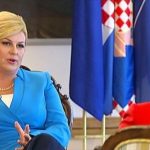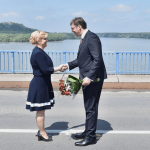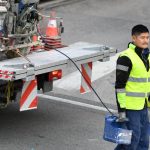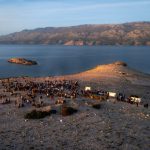ZAGREB, February 10, 2018 – An apology for the military aggression against Croatia and war reparations are not on the agenda of Serbian President Aleksandar Vučić’s visit, Croatian President Kolinda Grabar-Kitarović’s office said on Friday, which fuels speculation that the government and her office have not agreed on next week’s visit.
Sensitive outstanding issues from the time of the dissolution of the former Yugoslavia and the 1990s war will dominate the two presidents’ talks during the two-day visit. But Grabar-Kitarović’s office said war reparations were not among the topics discussed with the government and agreed with Belgrade through silent diplomacy.
Asked why Prime Minister Andrej Plenković had raised that issue at a cabinet meeting on Thursday, the president’s advisers said the question should be put to him. “That issue is not on the agenda now,” said a source on condition of anonymity. The same goes for a possible apology from Vučić, with Grabar-Kitarović’s office saying it was “a personal act which can’t be asked of anyone.”
The president’s office said war veterans’ associations supported her meeting with Vučić. However, some have announced protests against Vučić for Monday. In the 1990s, he incited local Serbs to rebel against Croatian authorities. All citizens have the right to protest, but it must be dignified, an official said.
Vučić is arriving in Croatia on Monday, at a time when Serbia-Croatia relations are tense. They have been additionally strained by a recent Serbian exhibition on the Jasenovac WWII concentration camp at the UN.
The meeting was not requested by a third state but is an initiative by Grabar-Kitarović to start dealing with outstanding issues, her associates said. “Such meetings are often called historic, but we feel it’s a positive step. We will see after the visit whether it was historic or not,” an official said.
According to the agreed agenda, the two presidents will talk about shedding light on the fate of 1,945 missing persons, the restitution of cultural assets plundered in Croatia during the war, cooperation in the prosecution of war criminals, the status of ethnic minorities, and the unresolved border issue.
The strengthening of economic relations and the importance of Serbia-Croatia cooperation for Southeast Europe will also be discussed by the two heads of state and the two state delegations which will include several ministers and the coordinators for dealing with outstanding issues. Grabar-Kitarović’s office underlined that representatives of ethnic minorities and missing persons’ associations will join in the talks.
On Monday, aside from Grabar-Kitarović, Vučić will meet with PM Plenković and Parliament Speaker Gordan Jandroković. A Croatian-Serbian economic forum will also be held and the two presidents will meet with young members of the Serb community.
On Tuesday, Vucic will go to Vrginmost to visit local Serbs, returning to Zagreb in the evening to attend an assembly of the Serb National Council.
On Friday, Grabar-Kitarović held talks with Tomislav Žigmanov, president of the Democratic Alliance of Croats in Vojvodina party and member of the Serbian parliament, and Slaven Bačić, head of the Croat National Council from Subotica. They talked about the status of the Croat minority in Serbia and issues whose resolution could contribute to improving it, the president’s office said in a press release, adding that the advancement of Croatia-Serbia relations was also discussed.
Serbian Prime Minister Ana Brnabić said in Budapes on Friday that “inflammatory statements” could not contribute to trust and cooperation in the region and called on Serbia and Croatia, ahead of Vučić’s visit, to “soft-pedal and give a chance to cooperation.










